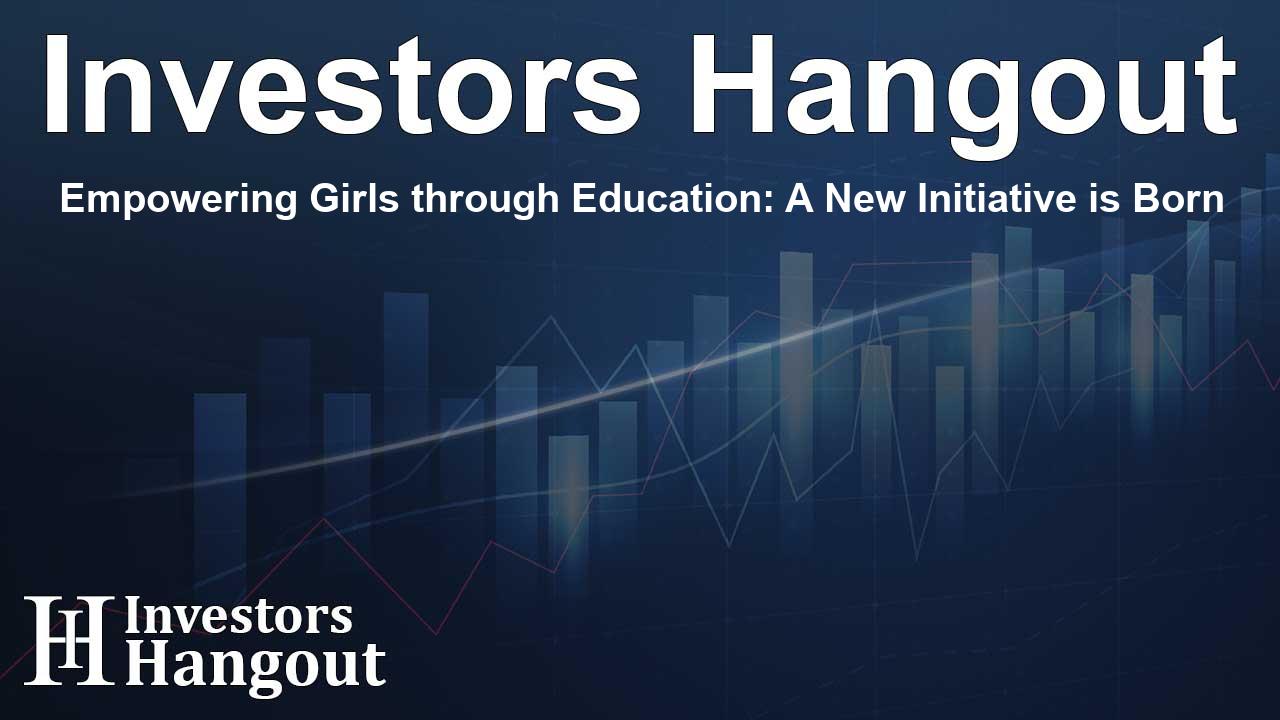Empowering Girls through Education: A New Initiative is Born

Empowering Girls through Education: A New Initiative is Born
Education Cannot Wait (ECW), a prominent global fund focused on education in emergencies, has launched two groundbreaking grants, totaling $1.9 million. Partnering with organizations such as the United Nations Girls' Education Initiative (UNGEI) and Plan International Canada, these grants aim to transform gender norms and improve educational access for women and girls in crisis settings.
Recognizing the Challenges
In crisis and emergency situations, girls often encounter overwhelming obstacles that hinder their right to education. Yasmine Sherif, Executive Director of Education Cannot Wait, emphasized the importance of safe and nurturing learning environments. "In such challenging conditions, the dreams of young girls can be derailed by issues like child marriage and gender-based violence," she stated. The collaborations with UNGEI and Plan International Canada are crucial steps in empowering these girls to reclaim their educational rights.
The Gender Gap in Education
Education remains out of reach for many girls, especially in conflict-affected countries. According to recent statistics, four out of five nations facing substantial gender gaps in education are conflict-affected. This alarming reality has prompted organizations to step forward, working with local parties to address these issues head-on. The new grants from ECW are designed to alleviate this gender divide, enable access to quality education, and help girls develop the skills needed to thrive.
Grant Distribution and Impact
The first grant, worth $1 million, will be utilized by UNGEI to integrate gender-transformative practices in educational programs. This initiative targets systemic gender inequalities in educational frameworks during emergencies. Meanwhile, the second grant of $900,000 will enable Plan International Canada to focus on measuring profound changes in educational settings, ensuring that gender equity is at the forefront of all strategies designed for crisis-affected populations.
Future Outlook: A Call for Change
The need for urgent action is more pressing than ever. Projections indicate that by 2030, only one in three girls in crisis-affected areas will complete secondary education. Currently, 53% of the staggering number of 72 million out-of-school children in crises are girls. To combat this trend and promote educational achievement among young girls, extensive reforms and increased funding must be prioritized.
Importance of Systematic Measurement
Tanjina Mirza, Chief Programs Officer at Plan International Canada, advocates for the rigorous assessment of intersectional gender equality outcomes in educational programs during emergencies. This approach is crucial for fostering meaningful, gender-transformative changes and strengthening effective community practices. By prioritizing gender equality in education, we can challenge existing inequities and ultimately create more resilient communities.
Conclusion: A Joint Effort for Change
The new grants from Education Cannot Wait represent a unified effort to break down barriers to education for girls in crisis situations. With grassroots partnerships and dedicated funding, there remains hope for advancing gender equality in education. As organizations continue to work together, girls worldwide will be empowered to learn, grow, and realize their potential, irrespective of their circumstances.
Frequently Asked Questions
What are the main goals of the new ECW grants?
The grants aim to promote gender equality in education, particularly for girls affected by crises, and integrate gender-transformative approaches in educational programming.
Who are the key partners in this initiative?
The main partners involved in this initiative include the United Nations Girls' Education Initiative (UNGEI) and Plan International Canada.
How much funding has been allocated through these grants?
A total of $1.9 million has been allocated to support educational reforms for girls in crisis settings.
What specific issues do girls face in crisis-affected areas?
Girls in these areas face barriers such as child marriage, gender-based violence, and lack of safe educational environments, which hinder their access to education.
What significance does measuring gender equality have in education?
Systematic measurement of gender equality outcomes is crucial for driving inclusive and transformative change in educational practices, ensuring that all girls have access to quality education.
About Investors Hangout
Investors Hangout is a leading online stock forum for financial discussion and learning, offering a wide range of free tools and resources. It draws in traders of all levels, who exchange market knowledge, investigate trading tactics, and keep an eye on industry developments in real time. Featuring financial articles, stock message boards, quotes, charts, company profiles, and live news updates. Through cooperative learning and a wealth of informational resources, it helps users from novices creating their first portfolios to experts honing their techniques. Join Investors Hangout today: https://investorshangout.com/
Disclaimer: The content of this article is solely for general informational purposes only; it does not represent legal, financial, or investment advice. Investors Hangout does not offer financial advice; the author is not a licensed financial advisor. Consult a qualified advisor before making any financial or investment decisions based on this article. The author's interpretation of publicly available data shapes the opinions presented here; as a result, they should not be taken as advice to purchase, sell, or hold any securities mentioned or any other investments. The author does not guarantee the accuracy, completeness, or timeliness of any material, providing it "as is." Information and market conditions may change; past performance is not indicative of future outcomes. If any of the material offered here is inaccurate, please contact us for corrections.